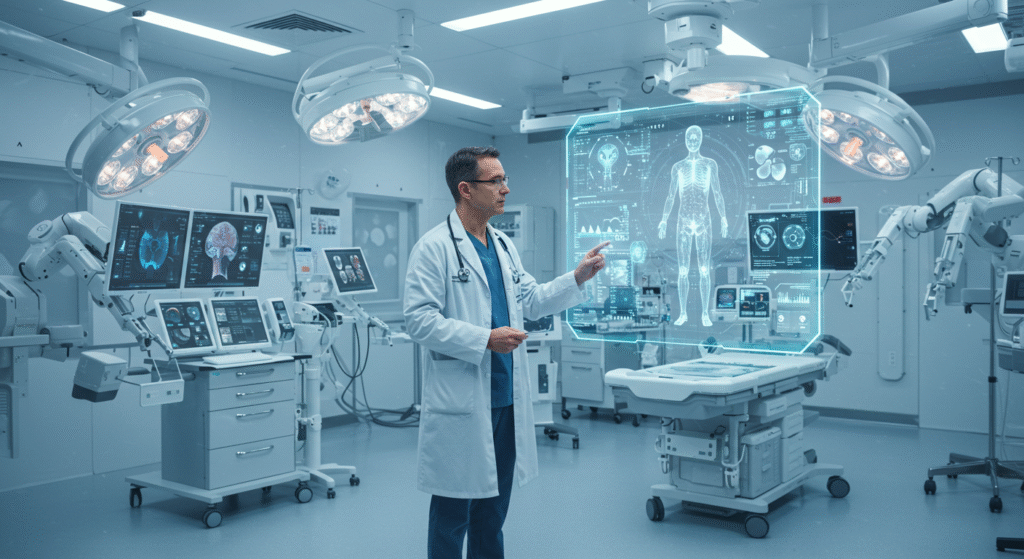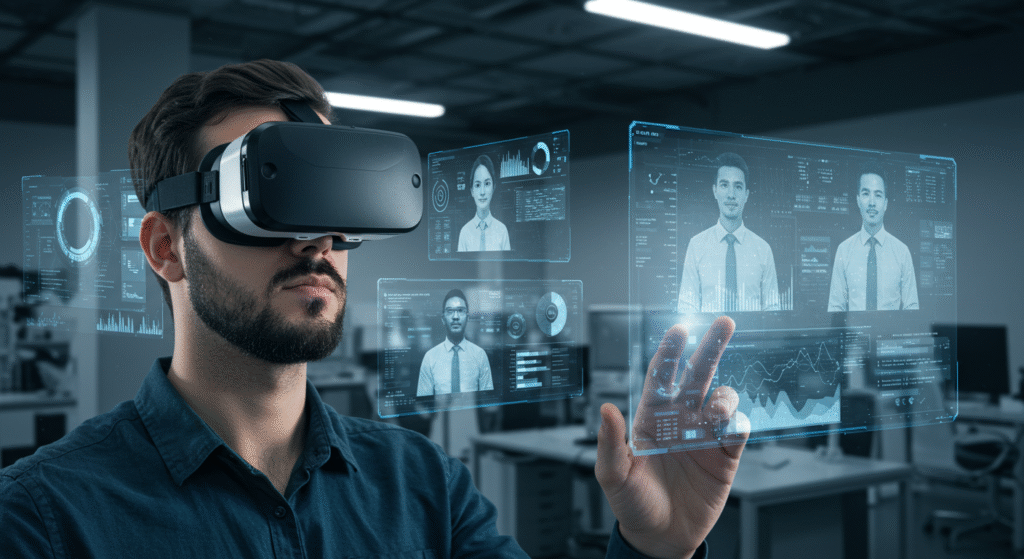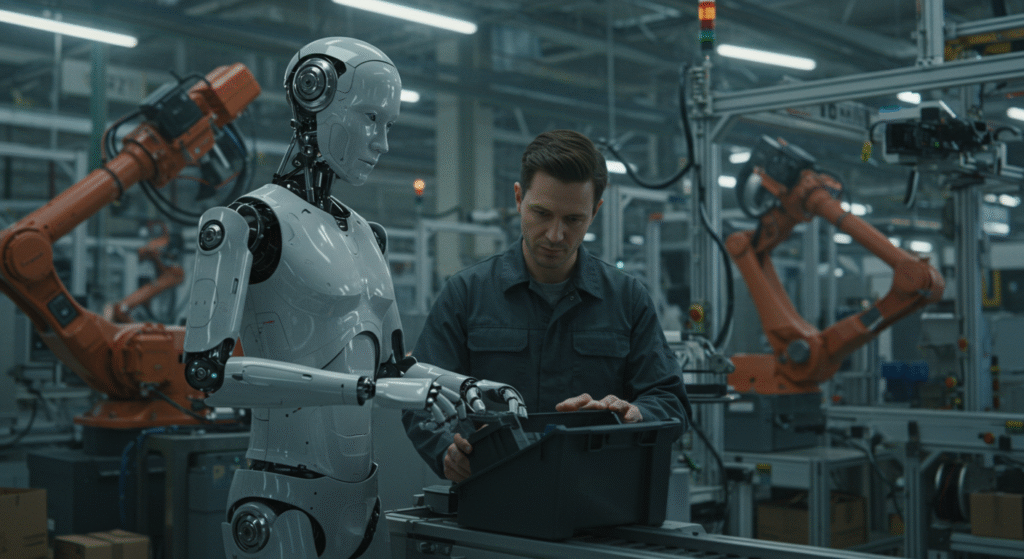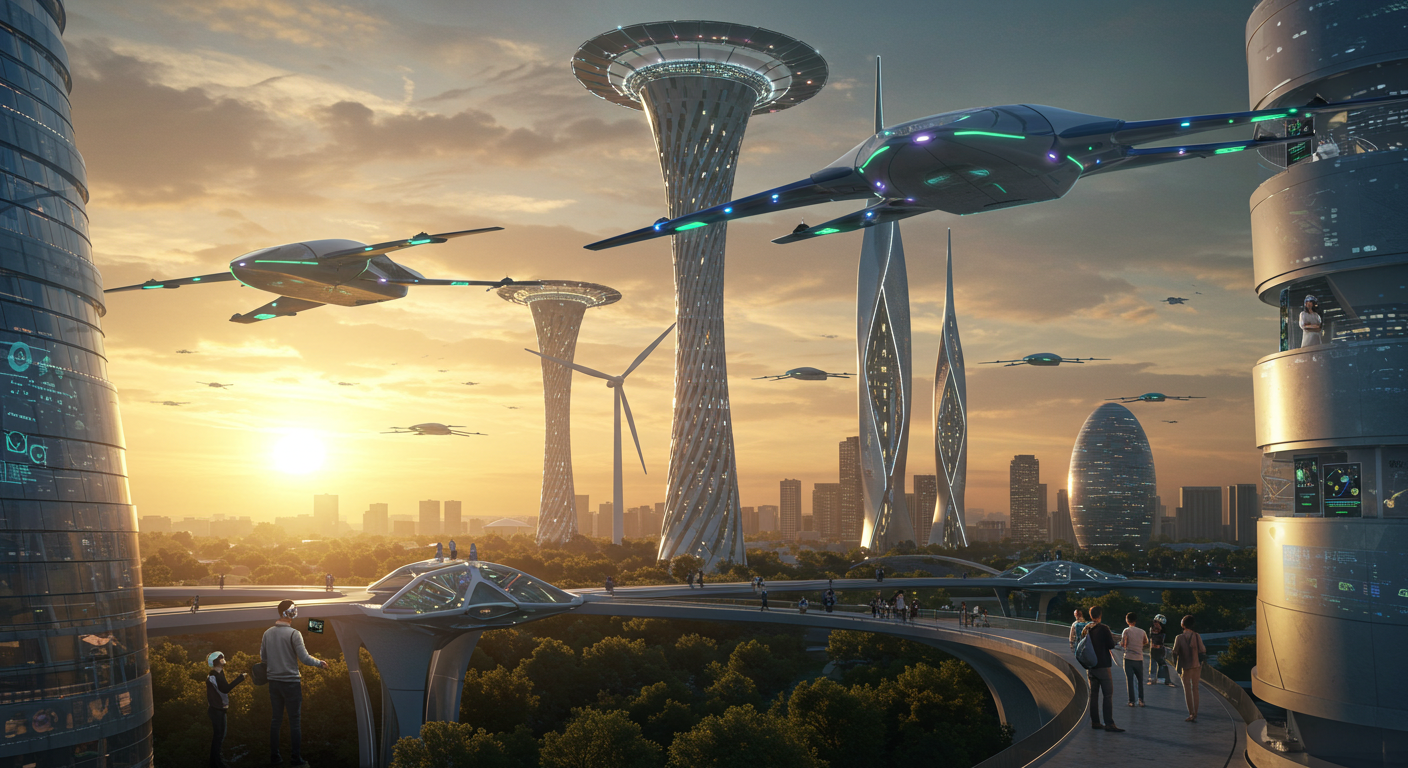Technology is no longer just an accessory in human life; it has become the very foundation of how we live, work, communicate, and even perceive the world around us. Over the past few decades, we have witnessed remarkable leaps—from the rise of the internet to the dominance of smartphones, from artificial intelligence making its way into our daily routines to the early days of quantum computing. But what lies ahead? The next decade promises to be one of the most transformative periods in human history, marked by innovations that will redefine industries, societies, and the very nature of human existence. In this article, we will explore the key technology trends expected to shape the next ten years, their implications, and how they will influence our daily lives, careers, and even our values as a society.
Artificial Intelligence: Moving Beyond Assistance Into Autonomy
Artificial intelligence (AI) is already present in most aspects of modern life. From virtual assistants on smartphones to personalized streaming recommendations, AI has proven to be an indispensable tool. However, the next decade will push AI into new territory, where it will no longer serve merely as an assistant but as an autonomous decision-maker in complex environments.
Generative AI and Creativity
The rise of generative AI has already demonstrated that machines can create—whether it be text, art, music, or even coding solutions. Over the next decade, these systems will evolve from being tools that inspire or support creativity to becoming full-fledged collaborators. Imagine filmmakers co-directing with AI that can generate hyper-realistic CGI, or architects designing cities alongside AI that optimizes every detail for sustainability and efficiency.
AI in Healthcare

Healthcare will be one of the biggest beneficiaries of AI evolution. Machine learning models are already diagnosing diseases faster than humans in certain cases. In the coming decade, AI will not only assist doctors but will also be capable of performing initial diagnoses independently, prescribing treatments, and even monitoring patients through wearables that constantly send real-time health data to AI-powered systems. Personalized medicine, tailored to an individual’s genetic makeup, will become more common thanks to AI’s ability to process massive amounts of biological data.
Ethical Considerations
As AI becomes more autonomous, ethical concerns will intensify. Questions about accountability, bias, and transparency will dominate discussions. The challenge of ensuring AI systems act in ways that benefit humanity without reinforcing inequalities will be central to future technological debates.
The Rise of Quantum Computing
While classical computing has powered the modern digital age, quantum computing represents the next great leap. Unlike traditional computers, which rely on bits that are either 0 or 1, quantum computers use qubits, which can represent multiple states simultaneously. This allows them to solve problems exponentially faster than classical systems.
Real-World Applications
In the next decade, quantum computing will shift from experimental labs to practical applications. Industries such as pharmaceuticals will use quantum computers to model complex molecular interactions, potentially discovering new drugs in a fraction of the time it currently takes. Financial institutions will harness quantum algorithms to optimize trading strategies, risk assessments, and fraud detection.
Security and Encryption
Quantum computing also poses a threat to current encryption standards. Many of the systems we rely on today for secure communications, including banking and government data, could become vulnerable once quantum machines reach sufficient power. As a result, the next decade will also see the rise of post-quantum cryptography—new methods of securing data that can withstand quantum attacks.
Biotechnology and Human Enhancement
The intersection of biology and technology is set to redefine what it means to be human. Advances in biotechnology and genetic engineering will transform healthcare, longevity, and even the capabilities of the human body.
CRISPR and Gene Editing
CRISPR technology has already shown that editing DNA is possible with unprecedented precision. In the coming decade, CRISPR will move from research labs to mainstream medical practices, allowing us to cure genetic disorders, eliminate inherited diseases, and perhaps even enhance human traits. While the ethical debates around “designer babies” will intensify, the potential for eradicating illnesses like cystic fibrosis or sickle cell anemia is undeniable.
Human Augmentation
Wearables today track our steps and heart rate, but tomorrow’s technologies will go much further. Neural implants could allow humans to interface directly with computers, enabling new forms of communication and productivity. Prosthetics powered by AI will function as seamlessly as biological limbs, and brain-computer interfaces may unlock abilities we currently consider science fiction.
The Expansion of the Metaverse and Virtual Reality

The metaverse—once a buzzword—is evolving into a multi-trillion-dollar economy. The next decade will see virtual reality (VR), augmented reality (AR), and mixed reality (MR) becoming everyday platforms for work, education, entertainment, and social interaction.
Work and Collaboration
Remote work has already redefined professional life, but the next step will be immersive collaboration in virtual spaces. Teams will no longer just join video calls but will meet in digital offices where avatars interact in lifelike ways, bridging the gap between physical and virtual presence.
Entertainment and Lifestyle
Gaming will remain the entry point into the metaverse, but entertainment will expand beyond play. Virtual concerts, fashion shows, and sports events will allow global audiences to participate in real-time immersive experiences. Shopping in the metaverse, powered by 3D product displays and digital currencies, will become a standard retail experience.
Renewable Energy and Sustainable Tech
As climate change continues to be the defining challenge of our era, technology will increasingly focus on sustainability. The next decade will see a surge in innovations aimed at reducing carbon emissions and building a more resilient planet.
Green Energy
Advancements in solar, wind, and nuclear fusion will dominate. Fusion energy, once considered unattainable, is inching closer to practical application. If achieved, it will provide humanity with a near-limitless, clean energy source.
Smart Cities
Urban centers will become smarter, leveraging IoT (Internet of Things) sensors, AI, and renewable infrastructure to optimize energy use, traffic management, and public safety. These cities will not only be efficient but will also be designed with sustainability and human well-being at their core.
Robotics and Automation

Automation has already transformed manufacturing, but its influence will expand into nearly every sector over the next decade. Robotics will not only handle repetitive tasks but will also take on roles requiring adaptability and intelligence.
Everyday Robots
Household robots will evolve beyond simple vacuum cleaners into multifunctional assistants capable of cooking, cleaning, and providing companionship. These machines will blur the lines between tool and family member, raising questions about social relationships with AI-powered entities.
Industry 5.0
Manufacturing will enter the era of Industry 5.0, where humans and robots collaborate in ways that maximize efficiency and creativity. Rather than replacing humans, robots will augment human work, enabling new levels of productivity.
Space Exploration and Colonization
Humanity’s ambitions no longer end on Earth. The next decade will see an explosion in space exploration, both by governments and private companies.
Mars and Beyond
Missions to Mars will intensify, with manned expeditions expected within the next decade. Companies like SpaceX aim to make interplanetary travel a reality, while space mining could open up a new frontier for resource acquisition.
Satellite Networks
Massive satellite constellations will expand internet access to underserved areas, creating a more connected world. These networks will also power innovations in communication, logistics, and global monitoring.
Conclusion: A Decade of Transformation
The next ten years will redefine the human experience in ways we can scarcely imagine today. From AI and quantum computing to biotechnology and space exploration, technology is set to transform not just industries but the very nature of humanity. While the opportunities are vast, so are the challenges—ethical dilemmas, security risks, and the threat of inequality. The future of technology is not just about innovation but about how we, as a society, choose to navigate and shape these changes. The next decade will not only be about building smarter machines but also about building a smarter, more sustainable, and more inclusive world.






